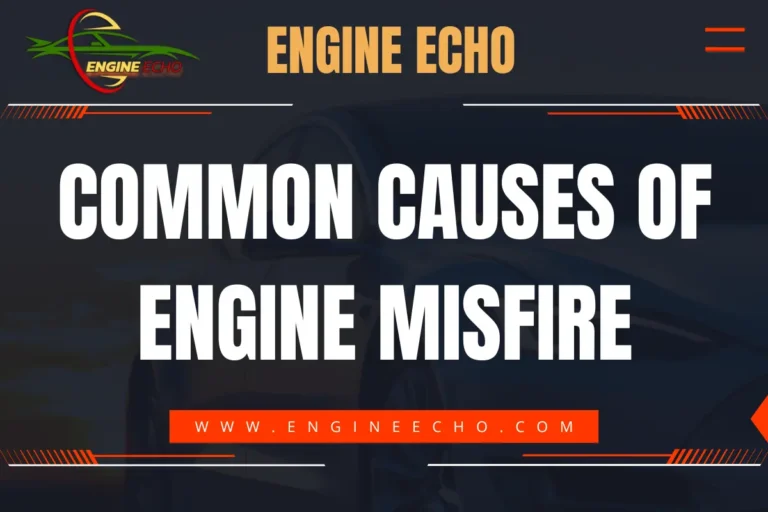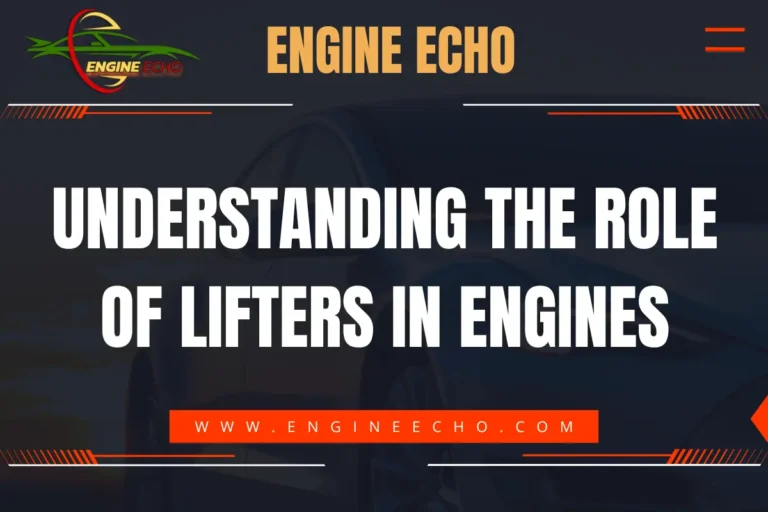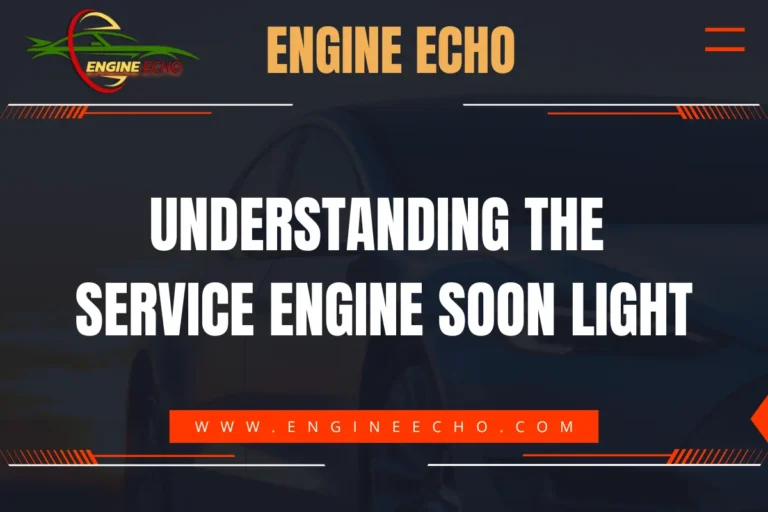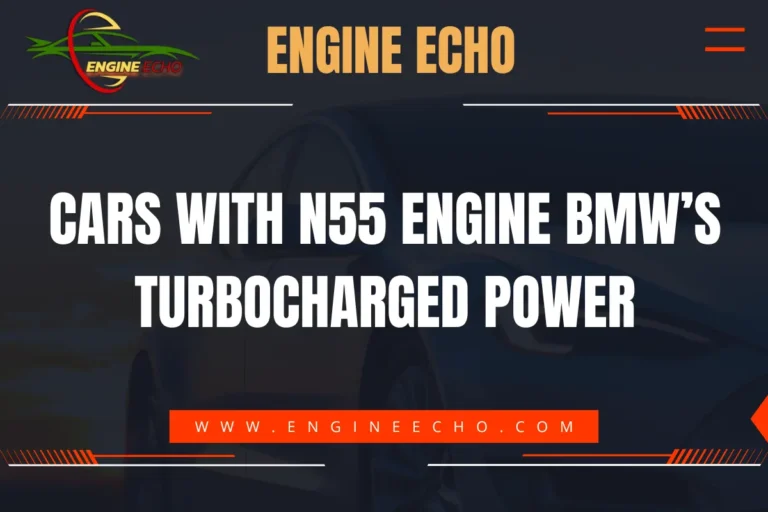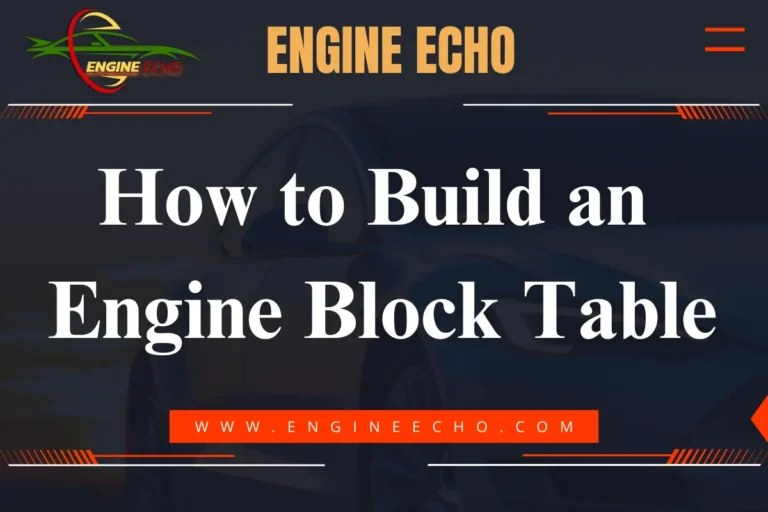Buying Cars with Engine Problems: What to Know

Key Takeaways
- Cost Savings Potential: Cars with engine problems are often sold at a significantly lower price, offering potential savings if repairs are manageable.
- High Risk, High Reward: While the initial cost may be low, repair costs can be unpredictable and sometimes exceed the car’s value.
- Critical Inspection Needed: Always have a professional mechanic inspect the car to assess the extent of engine damage before purchase.
- Negotiation Leverage: Use the cost of necessary repairs to negotiate a better price.
- Long-Term Viability: Consider whether you plan to keep the car long-term or sell it after repairs, which will impact the overall cost-benefit analysis.
Introduction
I get it—buying a car with engine issues sounds like you’re asking for trouble. But if you’re anything like me, the idea of scoring a deal and turning a clunker into a gem is just too tempting to pass up. I’ve seen it go both ways—some folks drive away with a bargain and a big smile, while others end up knee-deep in unexpected repairs. My goal here is to help you land in the first group. So, let’s dive into what you need to know before taking the plunge.
Understanding the Risks and Rewards of Buying Cars with Engine Problems
Pros of Buying Cars with Engine Issues
- Significant Cost Savings: One of the biggest perks here is the lower purchase price. Honestly, these cars can be gold mines if you know what you’re doing—or if you’ve got a buddy who’s a whiz with an engine. I’ve come across some incredible bargains—vehicles that would’ve been out of budget if they were in perfect running condition.
- Potential for High Resale Value After Repairs: There’s nothing quite like the satisfaction of buying a car on the cheap, fixing it up, and reselling it for a tidy profit. If you play your cards right, this could be a lucrative venture.
Cons of Buying Cars with Engine Issues
- High Repair Costs: On the flip side, engine repairs can be notoriously expensive. I remember a friend who thought he was getting a steal only to find out the engine repair cost more than the car was worth. That’s why it’s crucial to go in with your eyes wide open.
- Risk of Hidden Damages: Engine problems might just be the tip of the iceberg. Without a thorough inspection, you might find yourself knee-deep in unexpected repairs that can turn your bargain buy into a financial burden.
Common Engine Problems to Look Out For
Engine Misfires
- Causes: Engine misfires are like your car’s way of saying, “I’m not feeling so great today,” and they can be caused by anything from worn-out spark plugs to grumpy fuel injectors. During one of my car hunts, I encountered a vehicle that misfired due to worn-out spark plugs—an easy fix, but only because I knew what to look for.
- Repair Costs and Difficulty: Fixing engine misfires can range from simple and inexpensive fixes like replacing spark plugs to more costly repairs involving fuel injectors or ignition systems.
Overheating Issues
- Common Causes: Overheating is often due to coolant leaks, a malfunctioning radiator, or a broken water pump. I once bought a car that kept overheating. Turned out it was a minor radiator issue—a quick fix that saved me a bundle.
- Potential Damage: Persistent overheating can cause severe damage, including a warped engine block or blown head gasket. These are the kind of problems that can turn a great deal into a money pit, so be sure to check thoroughly.
Oil Leaks and Low Oil Pressure
- Symptoms and Detection: Common signs include visible oil spots under the car, a burning oil smell, or the oil pressure warning light on the dashboard. I’ve learned that these seemingly small issues can lead to big problems down the road if not addressed immediately.
- Impact on Engine Longevity: If not addressed, oil leaks and low oil pressure can lead to significant engine wear, resulting in major repairs or even complete engine failure.
Timing Belt/Chain Issues
- Signs of Wear: Listen for ticking noises from the engine or look for oil leaks from the timing belt cover. I’ve seen too many buyers overlook these signs, only to end up with a costly timing belt or chain replacement.
- Consequences of Failure: A broken timing belt or chain can cause extensive engine damage, including bent valves or a damaged piston, leading to costly repairs.
Evaluating a Car with Engine Problems Before Purchase
Hiring a Professional Mechanic
- Importance of a Pre-Purchase Inspection: Look, before you even think about buying that car, do yourself a favor—get a pro to check it out. Trust me, this step has saved me from some serious buyer’s remorse.
- Key Areas to Focus On: The mechanic should thoroughly check the engine’s condition, including the state of the timing belt, oil pressure, coolant levels, and any signs of previous repairs or modifications.
Diagnostic Tools and Tests
- OBD-II Scanner Readings: Using an OBD-II scanner can help identify trouble codes related to the engine and provide insight into potential problems. I’ve found this tool to be a lifesaver in spotting issues that aren’t immediately obvious.
- Compression Tests and Their Relevance: A compression test can reveal the health of the engine’s cylinders, indicating whether the engine is capable of producing adequate power.
Researching the Specific Car Model
- Known Issues with the Model: Do some homework on the make and model you’re considering. I always dig into forums and reviews to see if the car has any recurring issues. This step alone can save you a ton of hassle.
- Availability of Parts: Ensure that replacement parts are readily available and affordable, as this can significantly impact repair costs.
Estimating Repair Costs and Budgeting
Cost Estimation Tools
- Online Resources for Average Repair Costs: Websites like RepairPal and Edmunds provide estimates for common engine repairs based on your location and the vehicle’s make and model. These tools are handy, but always add a little extra to your budget just in case.
- Factors Influencing Repair Costs: Repair costs can vary based on factors such as the complexity of the problem, the mechanic’s expertise, and the availability of parts.
Setting a Repair Budget
- Importance of a Contingency Fund: You’ll want to stash some cash for those surprise repairs—because trust me, they’ll pop up when you least expect them.
- Balancing Repair Costs with Potential Resale Value: Consider whether the total cost of repairs and the initial purchase price will allow you to break even or make a profit if you decide to resell the car. This is where careful budgeting pays off.
Negotiating the Price Based on Engine Problems
Understanding Market Value
- How Engine Problems Affect the Car’s Market Value: Cars with engine problems are typically valued lower in the market. Knowing the fair market value of the car in its current condition is crucial for effective negotiation.
Effective Negotiation Strategies
- Leveraging Repair Costs in Negotiations: Use the estimated repair costs as leverage during price negotiations. I’ve found that having a detailed estimate from a mechanic can really strengthen your bargaining position.
- Importance of Documentation and Estimates: Having written estimates and documentation of the engine issues can help you negotiate a lower price by showing the seller you’re well-informed about the car’s condition.
Financing Options for Cars with Engine Problems
Traditional Auto Loans vs. Personal Loans
- Which is More Suitable for Cars Needing Repair?: Getting a traditional auto loan for a car with a bum engine? Yeah, that’s a tough sell. You might be better off looking into a personal loan or seeing if the seller’s got financing options.
Using a Credit Card for Repairs
- Pros and Cons: While using a credit card for repairs can be convenient, it may result in high-interest charges if the balance isn’t paid off quickly. I’d recommend this option only if you’re confident you can manage the payments without racking up debt.
Seller Financing Options
- Exploring Options Provided by Sellers: Some sellers may offer financing options directly. These can be beneficial, but ensure the terms are favorable and that you understand any potential risks involved.
Warranties and Insurance Considerations
Extended Warranties
- Are They Worth It for Cars with Engine Issues?: Extended warranties may not cover pre-existing conditions, so it’s crucial to read the fine print and understand what is and isn’t covered before purchasing one. Personally, I’d be cautious about relying on these for peace of mind.
Insurance Implications
- How Engine Problems Affect Insurance Premiums: Cars with engine problems may not qualify for certain types of insurance coverage, or they may result in higher premiums. Make sure to discuss this with your insurance provider to avoid any surprises.
- GAP Insurance Considerations: If financing the car, consider GAP insurance, which covers the difference between the car’s value and the loan amount if the car is totaled.
Case Studies: Real-Life Examples of Buying Cars with Engine Problems
Case Study 1: A Budget Buy that Paid Off
A few years ago, I bought a car with a minor engine issue for a fraction of its market value. After some careful repairs and a lot of elbow grease, I was able to sell it for a nice profit. It was one of those rare instances where everything just clicked.
Case Study 2: A Cautionary Tale
On the other hand, I’ve also seen situations where buyers got in over their heads. One example that stands out is a friend who bought a car with what seemed like a simple engine problem, only to discover that the entire engine needed replacing. The costs quickly spiraled out of control, turning what seemed like a deal into a financial burden.
Legal Considerations When Buying a Car with Engine Problems
Understanding “As-Is” Sales
- Legal Implications and Buyer’s Rights: When purchasing a car “as-is,” the buyer assumes the risk for any issues that arise after the sale. It’s important to know your rights and responsibilities here, as once the deal is done, there’s little recourse if problems crop up later.
State Lemon Laws
- Do They Apply to Cars with Known Engine Issues?: Lemon laws vary by state and typically do not cover cars sold with known defects. However, some protections may apply depending on the circumstances.
Disclosures and Transparency
- Seller’s Obligations Regarding Engine Problems: Sellers are legally required to disclose known issues in many states. Ensure that you receive all relevant information about the car’s condition before finalizing the purchase. I’ve learned the hard way that transparency is key to avoiding post-purchase regrets.
Long-Term Ownership vs. Reselling After Repairs
Factors to Consider for Long-Term Ownership
- Reliability After Repairs: Consider the long-term reliability of the car after repairs. Some engines may not perform well even after extensive repairs. From my experience, it’s essential to think about whether you’re in it for the long haul or just looking to flip the car.
- Maintenance Costs Over Time: Ongoing maintenance and potential future repairs should be factored into the decision to keep the car.
Reselling a Car After Repair
- Strategies to Maximize Resale Value: Document all repairs and maintain receipts to increase the car’s resale value. I can’t emphasize enough how much buyers appreciate a well-documented repair history—it can be the difference between a quick sale and a car that sits on the market.
- Importance of Documentation and Receipts: Proper documentation can reassure potential buyers of the car’s condition and justify a higher asking price.
Alternatives to Buying Cars with Engine Problems
Buying Certified Pre-Owned Cars
- Benefits and Costs: Certified pre-owned cars come with a warranty and have been inspected for major issues, offering peace of mind at a higher price point. If you’re not up for the risk, this might be a safer bet.
Leasing a Vehicle
- Pros and Cons Compared to Buying: Leasing may be a better option if you prefer driving newer vehicles with less risk of mechanical problems, though it lacks ownership benefits.
Using Public Transport or Car Sharing
- Cost Comparison and Convenience Factors: For those considering a car with engine problems purely for cost reasons, public transport or car-sharing services might offer a more practical and reliable alternative.
Conclusion: Is Buying a Car with Engine Problems Worth It?
Recap of Key Considerations
Buying a car with engine problems can be a cost-effective option if you are prepared for the potential risks and repair costs. It requires thorough research, careful evaluation, and sometimes, a bit of luck.
Final Thoughts on Making a Smart Purchase
At the end of the day, making a smart buy comes down to knowing exactly what you’re getting into and making sure you’re not biting off more than you can chew. If done correctly, it can lead to significant savings and even profit. However, without careful consideration, it can also become a financial burden. Make sure to weigh the pros and cons and consult professionals before making your decision.
Frequently Asked Questions (FAQs)
- Is it safe to buy a car with engine problems?
- Buying a car with engine problems can be safe if you thoroughly assess the extent of the damage and understand the repair costs. Always get a professional inspection before purchasing.
- How much does it typically cost to fix engine problems?
- Repair costs vary widely depending on the issue, ranging from a few hundred dollars for minor fixes to several thousand for major repairs like a complete engine rebuild.
- Can I get a loan for a car with engine problems?
- Getting a traditional auto loan for a car with a bum engine? Yeah, that’s a tough sell. You might be better off looking into a personal loan or seeing if the seller’s got financing options.
- Should I buy an extended warranty for a car with engine issues?
- Extended warranties may not cover pre-existing conditions, so it’s essential to review the terms carefully before purchasing.
- What should I do if the car breaks down shortly after purchase?
- If the car was sold “as-is,” you might have limited options. However, check if any consumer protection laws apply and consider seeking legal advice.
Thanks for checking out this article on EngineEcho.com! Hope you found this article: "Buying Cars with Engine Problems: What to Know" helpful! If you liked it and want to dive into more car engine topics, head over to our homepage. There's always something new to discover in the world of engines. Enjoy your reading journey!
Check out our previous article: Cars with Magnesium Engine Blocks

